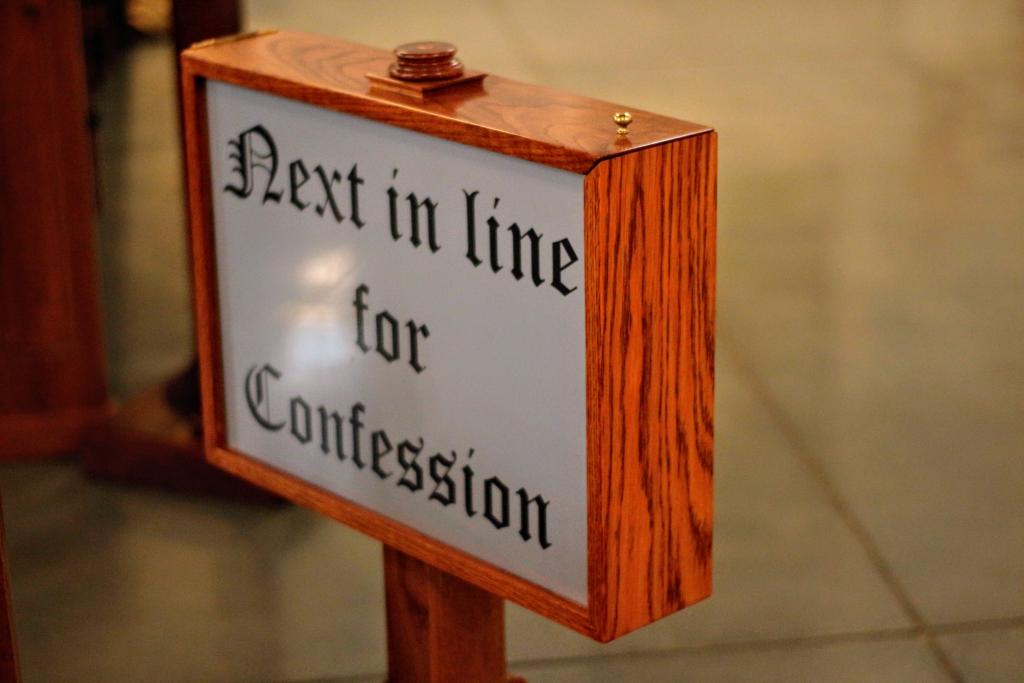The Sacrament of Reconciliation According to the Church
According to the Catholic theology, reconciliation is three-fold. Firstly, the disrupted friendship between humankind and God is restored; secondly the disrupted spiritual and supernatural solidarity bond within the Church (community of devotees) is restored, and finally, the each person`s inner peace is restored in order for the person to grow spiritually and have a calm mind and heart. Reconciling with thyself means being at peace with one`s present and past and overcoming self-loath.
The Council of Trent teaches that, “If in all those who are regenerated there were such gratitude towards God that through his kindness and grace they constantly preserved the justice which they have received in baptism, there would have been no need to institute another sacrament for the forgiveness of sins besides baptism itself. But since God who is rich in mercy (Eph. 2:4), “knows how we are made” (Ps 103:14), he has given a remedy of life also to those who after baptism have delivered themselves up to the bondage of sin and the devil’s power, namely the sacrament of Penance whereby the benefit of Christ’s death applied to those who have fallen after baptism.”
The Second Vatican Council teaches that, “Those who approach the sacrament of Penance obtain pardon from God’s mercy for the offence committed against him and are, at the same time, reconciled with the Church which they have wounded by their sins and which by charity, by examples and by prayer labors for their conversion.”
Deliverance Through the Sacrament of Reconciliation
Through the Sacrament of Penance, God the Father welcomes back the repentant daughter or son who had separated from Him because of sin. Christ carries the sheep that had gone missing on his shoulder; He reunites it with the rest of the flock (the community of devotees). Again, through the Sacrament of Penance, the Holy Spirit purifies God`s Temple which is the life of the God`s penitent son or daughter, and He dwells fully in her or him. The reunion is ultimately expressed at the Lord`s table with fervent and transformed spirit, and there is abundant happiness over one penitent sinner at God`s banquet. (Luke 15:7, 10:32).
The Sacrament of Reconciliation has a relationship with other Sacraments. The Catholic Church teaches that a similarity exists between the sacrament of baptism and the sacrament of reconciliation. Both these sacraments are important gateways through which one acquires God`s mercy; the sacraments help a person to transform from being a sinner to being God`s child.
St. Thomas Aquinas once said, “In the life of the body a man is sometimes sick, and unless he takes medicine, he will die. Even so, in the spiritual life a man is sick on account of sin. For that reason he needs medicine so that he may be restored to health; and this grace is bestowed in the Sacrament of Penance.”
Therefore, the Sacrament of Reconciliation is every sinner`s saving grace. Even if there might be a trust deficit in today`s society including within the Church but it is written in James 5:16 that, “Therefore, confess your sins to one another and pray for one another, that you may be healed. The fervent prayer of a righteous person is very powerful.” Therefore, one should confess their sins to the one they have wronged so that forgiveness and reconciliation can take place and that the Body of Christ be healed.
The Council of Trent outlines that the most significant act of the repentance is contrition, and it defines it as the “heartfelt sorrow and aversion for the sin committed along with the intention of sinning no more”. This means that a genuine confession starts with penitence that will lead to confession then reparation. Lastly, through the prayers and signs of absolution, God pardons the repentant through the priest who is the Church`s minister.
Final Words…
It is evident that the Sacrament of Penance has a very important role in every Christian`s spiritual journey and it draws upon particular implications for the mission and life of the Catholic Church.














